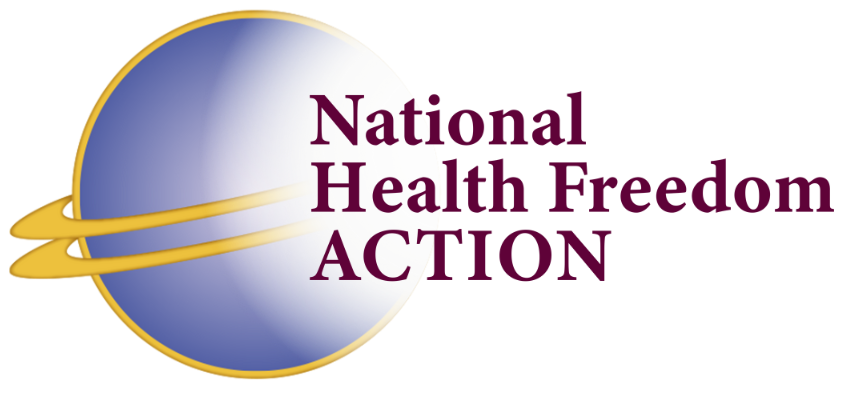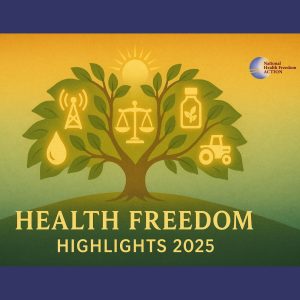
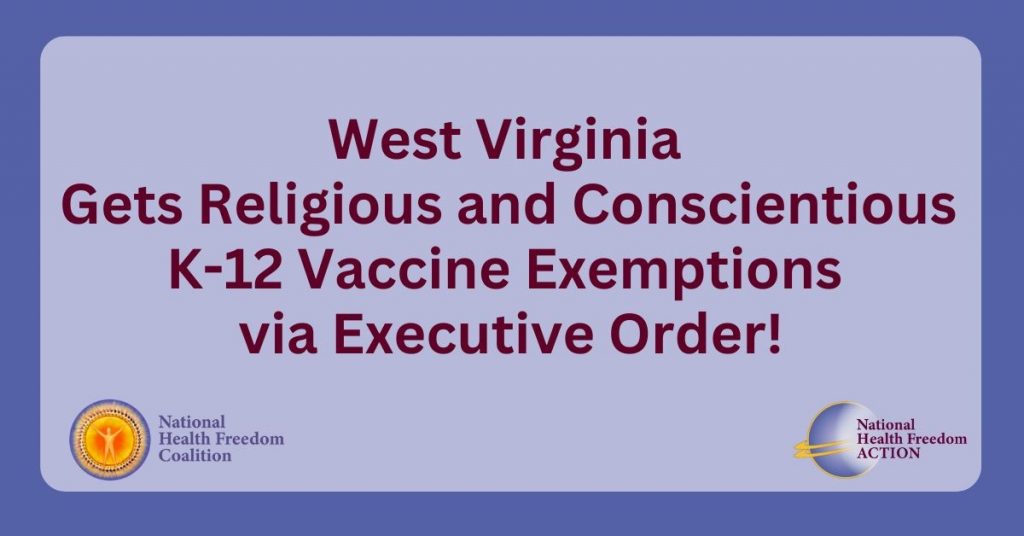
After decades of efforts by parents and other activists, West Virginia finally has religious and conscientious exemptions for K-12 vaccines. On his second day in office, January 14, 2025, West Virginia Governor Patrick Morrisey issued Executive Order No. 7-25, recognizing that religious freedom required him to add these two critical exemptions. Prior to this order, West Virginia was one of the few states that did not allow any non-medical exemptions to school immunization requirements, placing it alongside California, New York, Connecticut, and Maine. Back in early 2024, the former West Virginia Governor Jim Justice vetoed a proposal for a religious exemption which had been passed by the legislature.
Authority for vaccine exemptions Order
Legislatures are supposed to make laws, and governors are supposed to enforce laws. In this case Governor Morrisey takes the position that various parts of the West Virginia and US Constitutions, combined with other statutes, require him to issue the Order under his duty to execute the law. Under the West Virginia Constitution people have “certain inalienable rights,” the right to be unmolested in one’s “body or goods,” or otherwise suffer because of their “religious opinions or beliefs,” as well as the fundamental right to an education. The state’s Equal Protection for Religion Act from 2023 was another basis supporting Morrisey’s executive Order. Morrisey’s Order notes that forcing children to accept vaccinations, without a religious exemption, violates the free exercise of religion guaranteed under the US Constitution.
Equal Protection for Religion Act of 2023
The state’s Equal Protection for Religion Act passed in 2023. It prohibits the state from substantially burdening a person’s exercise of religion, unless it is necessary to achieve a compelling governmental interest, in the least restrictive way. Citing this law, Morrisey’s Order acknowledges that many West Virginians have sincere religious and moral objections to vaccines. The executive Order directs the state health officials to create a process for parents to submit religious or conscientious objections in writing, which would exempt their children from the mandatory vaccination requirements. Under the Order, a written objection to vaccination is itself adequate proof of its validity.
Four states left with no religious or conscientious exemptions
Nationally, vaccine exemption policies vary widely. According to the National Conference of State Legislatures (NCSL), all states allow medical exemptions, but the approach to non-medical exemptions differs. As of August 2024, thirty states and Washington D.C. allow exemptions based on religious beliefs, while thirteen states provide exemptions for both religious and personal reasons. Only five states, including West Virginia before this executive Order, prohibited all non-medical exemptions.
Plan ordered by February 1
Governor Morrisey’s Order requires the Bureau for Public Health to develop a comprehensive plan by February 1, 2025, to implement the new exemption process. This plan must include proposals for legislative changes and regulations to reflect the new policy. Additionally, the Bureau must report on the number of individuals who have filed objections to the compulsory immunization law.
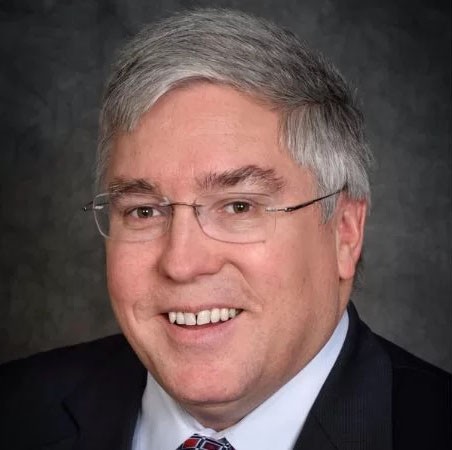
West Virginia Governor
Patrick Morrisey
Advocate for liberty
Governor Morrisey, a longtime fighter for individual liberties and government transparency, worked in legal and healthcare policy prior to entering politics. Before becoming governor, he served as West Virginia’s Attorney General, where he prioritized fighting fraud, waste, and abuse. His legal career includes experience in health care legislation, including his work on the Medicare Modernization Act of 2003. As a strong proponent of personal freedoms and religious liberties, Morrisey’s decision to issue Executive Order No. 7-25 shows a commitment to protecting West Virginians.
Big win for health freedom
This shift in West Virginia’s immunization policy reflects the ongoing national debate about health freedom, “public health,” and individual rights. Vaccine proponents argue for mandatory vaccinations which they think are essential to prevent disease outbreaks. Opponents contend that individuals should have the right to make healthcare decisions based on their religious or personal beliefs and right to bodily autonomy. With this executive Order, West Virginia joins the majority of states that offer non-medical exemptions, and by allowing both religious and conscientious exemptions, it should ensure that no one is forced to violate their deeply held beliefs in order to send their kids to school.
Governor Morrisey’s Order shows us the many avenues our system allows for important policy decisions: legislation and rulemaking, court opinions, and here an executive’s power to make sure the rights of citizens in their state are protected. And, no doubt, the long-term, tenacious efforts of concerned parents and activists helped create an environment ripe for Order 7-25.
RECENT NEWS

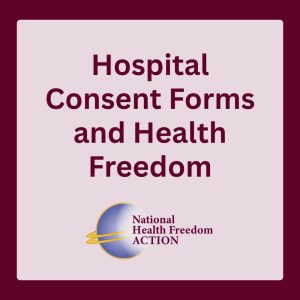
Hospital Consent Forms and Health Freedom
December 4, 2025


Blessings to all of our supporters and Happy Thanksgiving!
November 26, 2025
